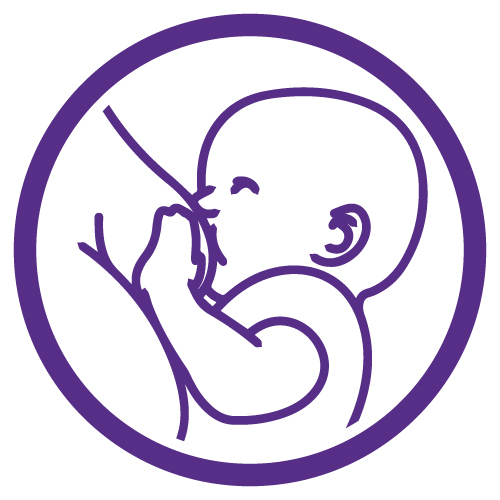 Breastfeeding Strategies for the Preterm Infant Online Course(s) & Continuing Education
Breastfeeding Strategies for the Preterm Infant Online Course(s) & Continuing Education
Access the latest clinical skills and research for Breastfeeding Strategies for the Preterm Infant for NEONATOLOGY professional training. These Breastfeeding Strategies for the Preterm Infant online courses provide practice-changing skills and valuable perspectives from leading global experts. This Breastfeeding Strategies for the Preterm Infant education has been accredited for a variety of CEUs / CERPs and can be accessed on-demand, at your own pace.

Navigating Pathways to Breastfeeding Success in the Late Preterm Infant

Dr. Nastassia Harris is a licensed registered nurse with over 15 years’ experience in perinatal nursing and became an International Board Certified Lactation Consultant in 2009.
Nastassia serves as an assistant professor in the school of nursing at Montclair State University. Over her career Nastassia developed a passion for eliminating disparities in black infant and maternal health. In 2018, she went on to found a nonprofit, the Perinatal Health Equity Foundation where she serves as the executive director. Through the nonprofit, Nastassia established Sistahs Who Breastfeed, a breastfeeding support group for black women which operates in several NJ cities.
She is active in several committees and organizations including the Association of Women's Health Obstetrics and Neonatal Nursing and the Black Mamas Matter Alliance. Nastassia's research and clinical interests include implicit bias/racism in healthcare, breastfeeding in the black community, obstetrical violence, high risk OB, and reproductive justice.
Topic: When It's Time to Let Go... Stories of Weaning - [View Abstract]
Breastfeeding the late preterm newborn (34 0/7 to 36 6/7 weeks) presents unique challenges that differ from that of a health full term baby. By nature of their immaturity, late preterm infants are at higher risk for developing jaundice, hypoglycemia, falling sleeping during feedings, and being difficulty to wake. Unfortunately, this also puts them at a greater risk for formula supplementation, despite a family’s desire for exclusive breastfeeding. This presentation will help to illustrate the challenges in breastfeeding the late preterm infant, and techniques for preserving exclusivity in the hospital and post discharge.

Nursing A Preemie, Perspectives For Lactation Supporters and Professionals

Paulina is the mother of three multicultural Latino children and Project Director for Lifespan Local. Paulina earned her BS in Psychology from the Pennsylvania State University, a MS in Organizational leadership from the University of Denver and is completing her PhD in Health and Behavioral Sciences at the University of Colorado - Denver. Paulina has over 18 years of experience working with families with young children. As a Maternal Child Health specialist for Jefferson County Public Health, she developed a NICU follow-up home visitation program and the pediatric emergency preparedness plan, co-founded and coordinated the Conectando Network (former Adelante Jeffco), established community navigation and lactation support groups focused on the Latino Spanish speaking community, and lead other initiatives to support leadership and partnerships among communities and organizations. During the COVID-19 pandemic, she managed the new program Whole Community Inclusion to ensure the pandemic response and recovery implementation included health equity practices that recognize the needs and the strengths of priority populations in the county. Her areas of current work include promoting perinatal and infant mental health along the continuum of care; building community capacity to navigate health and education systems; facilitating organizational change to embrace linguistic and culturally responsive practices; and establishing community-placed participatory programs to strengthen communities. She likes to be with people, learn from and with others, and connect passions for meaningful work.
Topic: From the NICU to the home: mother’s experiences - [View Abstract]
Topic: Leadership Skills in Lactation: Make Extraordinary Things Happen - [View Abstract]
Topic: Liderazgo en Lactancia - Para Alcanzar Metas Extraordinarias - [View Abstract]
Topic: Nursing A Preemie, Perspectives For Lactation Supporters and Professionals - [View Abstract]
In this presentation participants will learn about parents’ experiences with feedings in the NICU and continuation of lactation after going home, the importance of parent-child mutual-regulation and its implication in feeding success, strategies for lactation professionals to support the nursing relationship, and infant mental health concepts in relationship to feeding.
This presentation will include qualitative and quantitative data to broaden participants understanding of the context of lactation with a premature baby or a baby with special medical conditions. The participants will also receive information about multidisciplinary approaches and initiatives to support families with preemie babies.

View Details / Enroll
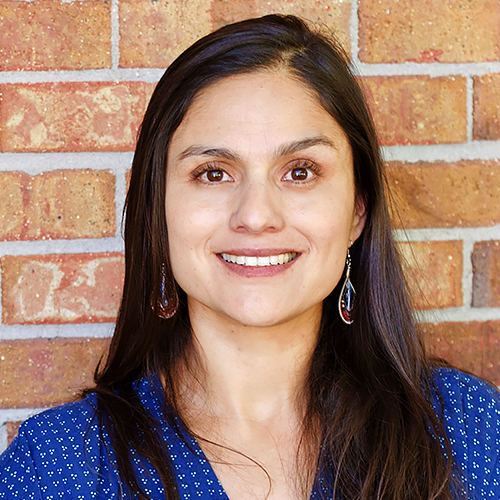
View Details / Enroll
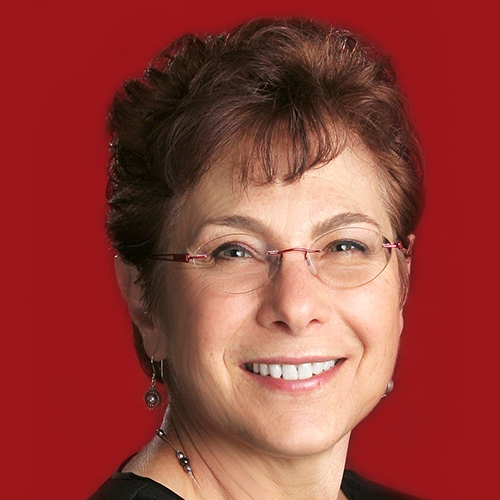
Optimizing the Feeding Abilities of Premature Infants to Support Breastfeeding

Robin P. Glass, MS, OTR, IBCLC practices occupational therapy at Seattle Children's Hospital in Seattle, WA and is an Assistant Clinical Professor in the Department of Rehabilitation, at the University of Washington. Her clinical specialty is the treatment of infants, with a strong focus on feeding and swallowing issues. She provides treatment for hospitalized infants including the NICU with a wide range of medical and developmental diagnoses. She is NDT trained and is a 20 year Board Certified Lactation Consultant. Robin has extensive national and international experience speaking about infant feeding.
Robin has received numerous awards including the National Association of Neonatal Therapists (NANT) 2015 Pioneer Award and the 2018 Nancy Danoff Spirit of Service award from the Breastfeeding Coalition of WA and Nutrition First. Robin has co-authored numerous journal articles as well as the book Feeding and Swallowing Disorders in Infancy: Assessment and Management.
Topic: Optimizing the Feeding Abilities of Premature Infants to Support Breastfeeding - [View Abstract]
For the baby born prematurely, learning to breast/chestfeed may be more complex. There are factors related to the infant, the environment and to the lactating parent that can make this process more challenging. Many babies often leave the NICU not fully breastfeeding and continue to struggle once at home. This presentation will describe, evidence-based approaches to developing breastfeeding in the premature infant. It will review developmental and co-morbid factors affecting the infant’s feeding acquisition and describe interventions that can be used to improve breastfeeding skill.
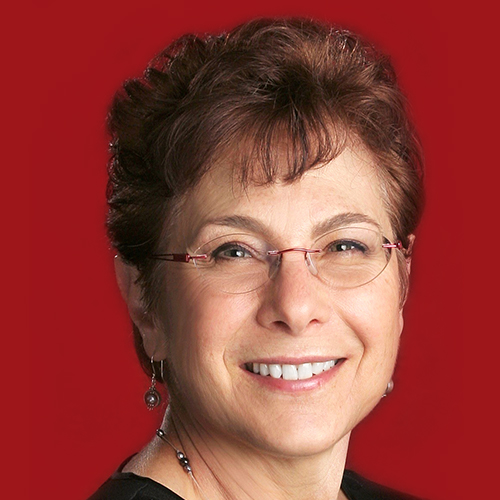
View Details / Enroll
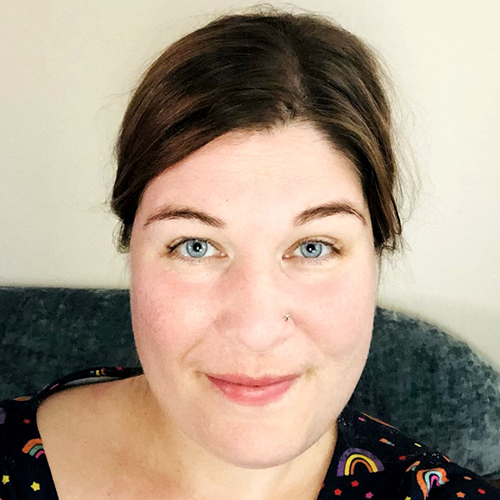
Protecting Breastfeeding by Facilitating Safe, Early Discharge from NICU with Home Nasogastric Tube Feeding

Amanda is a children's nurse, having worked on pediatric wards and in the community supporting children with complex health needs, although over ten years of her nursing career have been in neonatal care, where she is further qualified in specialty (QiS). She trained and volunteered in breastfeeding peer support two years into her nursing career, ultimately sitting the exam to become an IBCLC to ensure that the families within neonatal care had access to an infant feeding specialist familiar with their journey. Amanda has since further specialized in Neonatal Homecare, is a Nurse Practitioner in restrictive lingual frenulum, and has worked as an Infant Feeding Lead for a regional surgical NICU and SCBU, as well as a regional Infant Feeding Advisor to ten neonatal units across a regional network. She has recently been appointed to the Board of Trustees for the Lactation Consultants of Great Britain (LCGB), where she is the Neonatal Lead.
While approximately 80% of UK mothers initiate breastfeeding, by 3-4 months, just 15% of infants receive any breastmilk. Despite the low rates of breastfeeding nationally, in 2021-22, 64% of the NICU graduates in our unit were discharged receiving breastmilk. One possible reason for the higher rates of breastfeeding in this population may be our innovative home NGT feeding programme. In order to hasten discharge from NICU, many mothers feel under pressure to introduce bottles to meet “full oral feeding” criteria. The home nasogastric tube (NGT) feeding programme focusses on the infant’s and family’s needs, without rushing the infant towards full oral feeding, which some are not yet ready for. In this way, all oral feeds can be at the breast, with NGT feeds as required for supplementation. We aim to reduce unnecessary days in hospital, reduce readmissions post-discharge, keep families close to their infants, and embrace the integration of families as essential members of the neonatal care team. This presentation will discuss the practicalities of designing a discharge pathway that optimises parental confidence and ensures competence with home administration of NGT feeds. It will also discuss how to predict which infants are ideal candidates for short-term home NGT feeding, and how to transition to direct breastfeeding. Finally, the presentation will present a case for home NGT feeding as an intervention to protect the mother’s breastfeeding goals, optimise clinical outcomes for infants, and improve the experience of neonatal care for families.
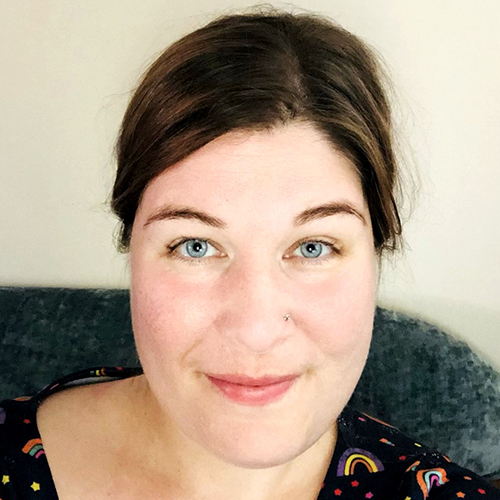
View Details / Enroll

Supporting Early Oral Feeding Experiences in the NICU: Utilizing the Lens of Orofacial Myology

Ramya Kumar is an ASHA certified Speech Language Pathologist specializing in infant and pediatric feeding disorders while practicing in a Level 3 NICU and outpatient settings in Phoenix, AZ. She is a Board Certified Specialist in Swallowing & Swallowing Disorders, Certified Neonatal Therapist, International Board Certified Lactation Consultant, Neonatal Touch & Massage Certified Therapist & has completed the Trauma Informed Professional Certificate. Ramya is an internationally sought out speaker & clinical mentor on the topic of neuroprotective care in the NICU, Pediatric Feeding Disorders and Tethered Oral Tissues. Ramya is passionate about helping families create mealtime success through a whole-body lens. More recently, Ramya has been serving as a NICU Developmental Coordinator championing changes in unit culture, system-wide policy development and supporting transition of NICU families to community based programs. She has also co-founded Arizona NICU Follow-Up Specialists, a community resource supporting NICU grads and their families as they transition from hospital to home.
Topic: Trauma Informed and Family Centered Care! Keeping the Family Unit at the Center of a Tongue-Tie Treatment Model - [View Abstract]
One of the most complex and challenging tasks required of an infant in the neonatal ICU (NICU) is oral feeding. Oral feeding progression is also one of the most critical pieces of the discharge puzzle. Depending on their medical and nutritional needs, these infants often experience procedures like intubation and/or placement of medically necessary interfaces like nasal prongs, CPAP masks, orogastric and nasogastric feeding tubes. Intra-oral presence of tubes paired with the sensory motor implications of tape used to secure these interfaces and the overall challenges of a developing infant in the ex-utero environment places these infants at risk for oral feeding difficulties downstream. This presentation will provide participants with ways to support the developing oral structures and subsequent oral motor and oral sensory components of a neonate in an attempt to support breast and bottle feeding progression in the NICU.
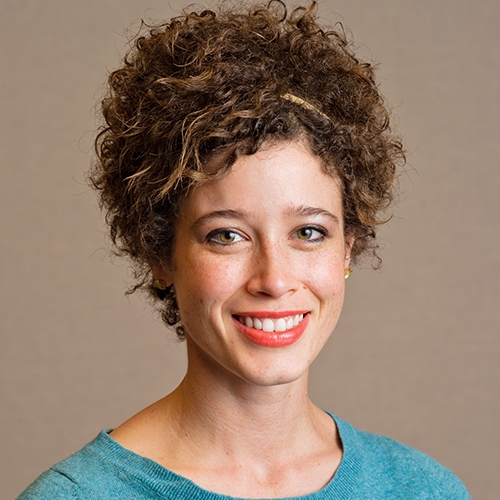
Supportive Breastfeeding Practices for Infants With Swallowing Challenges in the NICU

Chesney Willis, MHS, CCC-SLP, IBCLC is a certified speech language pathologist and lactation consultant from the University of Missouri Women’s and Children’s hospital. She earned her master of health sciences degree from the University of Missouri in 2008 and obtained her IBCLC in 2017. Chesney has over 13 years of experience working across outpatient rehabilitation, home-health, inpatient care for pediatrics and neonates in level II and III NICU settings. Clinical expertise includes evaluation and treatment of disordered swallowing and feeding in special neonate populations. Experience includes the development and dissemination of education for best feeding practices for late preterm and preterm infants to families and inter-disciplinary health care providers. She is passionate about supporting mother-baby breastfeeding dyads with special feeding considerations from hospitalization through the transition to home.
In this session, learners will explore the transition from gavage to breastfeeding in the NICU from the perspective of a premature infant. Babies born prematurely or with special needs typically develop safe feeding and swallowing at a slower rate. Early coordination of the swallow may be appreciated between 32 and 34 weeks gestation, with variability depending on degree of prematurity and underlying health conditions. Early breastfeeding success depends on identifying stress cues during feeding, teaching modifications, and keeping a flexible, developmentally sensitive care plan. Participants will learn to recognize bedside clinical signs of aspiration with special discussion of cough maturation and its long-term clinical implications.
Providers will be encouraged to support families from early antepartum with imminent preterm delivery, postpartum during the “golden hour” for an exclusively pumping mom, and introduction to Mother’s milk with early swallowing at bedside in the NICU. Working closely with lactation and therapy services ensures appropriate education and successful developmental expectations for the individualized NICU infant. Lastly, as families prepare for home, the importance of an inter-disciplinary team approach with appropriate discharge recommendations and community supports will be highlighted.


Nancy Mohrbacher was born and raised in the Chicago area, where she lives today. She is a board-certified lactation consultant who has been helping nursing mothers since 1982. Her breastfeeding books for parents and professionals include Breastfeeding Answers Made Simple and its Pocket Guide; Breastfeeding Made Simple(with Kathleen Kendall-Tackett); Working and Breastfeeding Made Simple; and Breastfeeding Solutions and its companion app for Android and iPhone.
Nancy currently contracts with hospitals to improve breastfeeding practices, writes for many publications, and speaks at events around the world. Nancy was in the first group of 16 to be honored for her lifetime contributions to breastfeeding with the designation FILCA, Fellow of the International Lactation Consultant Association.
Topic: Applying Bioethics to Milk Banking and Milk Sharing - [View Abstract]
Topic: Concerns About Low Milk Production - [View Abstract]
Topic: Transitioning the Preterm Infant to the Breast - [View Abstract]
Topic: Using Gravity-Assisted Positions to Prevent Early Breastfeeding Problems - [View Abstract]
Topic: What Mothers Need to Exclusively Breastfeed - [View Abstract]
Topic: What's New In Lactation - [View Abstract]
To most effectively help preterm babies learn to breastfeed, we need to first understand how preterm babies’ breastfeeding behaviors differ from term babies. This talk describes the research-based 7 preterm breastfeeding stages, the “road map” that shows parents and providers what to expect during this transition. It also includes strategies that can smooth the path and speed the journey to exclusive breastfeeding.
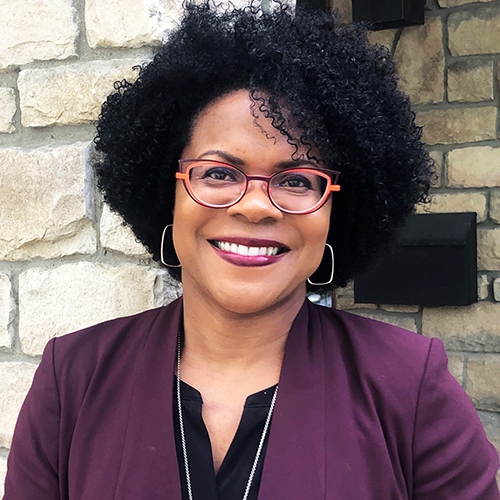
Walking with NICU Families Through Their Infant Feeding Journey

Maxine graduated with a nursing degree followed later on by her Master of Nursing in 2017 both from the University of Calgary. Maxine was a public health nurse in Calgary for 13 years, where providing face to face contacts with new families soon after discharge is a standard of care. Most families named feeding challenges as their biggest concern. In turn, Maxine developed a passion for lactation support, worked towards and attained the International Board-Certified Lactation Consultant designation, in order to assist families to reach their feeding goals.
In 2016, Maxine made the transition from public health to acute care where she currently works in all areas of a large Children’s hospital to support dyads with a myriad of lactation concerns but is primarily in the NICU. Maxine’s responsibilities includes orienting new staff to teaching a provincial lactation education within a team. Maxine is passionate about sharing knowledge with aspiring LCs and is a mentor to many. Maxine participates on numerous committees to update lactation and feeding policies, procedures and documents. Furthermore, she volunteers on provincial and national breastfeeding committees.
To graduate from the Neonatal Intensive Care Unit (NICU) infants are required to be adequate feeders. Feeding is a learned skill for NICU babies that is expected to “be there in waiting” after a long medical and or surgical admission. Effective feeding and subsequent weight gain in the NICU are the measures and skill to which a discharge ticket home is granted. Feeding can sometimes be overlooked in regards to its role in infant well being and parental confidence. Infants are admitted to surgical level 3 NICUs for many reasons, including prematurity, necrotising enterocolitis, intestinal perforations, gastroschisis, duodenal atresia, omphaloceles, therapeutic hypothermia, seizures, and oesophageal atresia /fistulas including genetic or metabolic abnormalities. Many of these illnesses have a very long course toward healing and recovery before oral feeding is introduced.
Lactation Consultants in the NICU are well positioned to ensure support of the family and medical team along the way, to optimize successful oral feeding upon discharge home.
This talk will look at some of the ways that parental presence and mom’s milk is therapeutic in the NICU, and how the progression of breastfeeding can be the ticket to going home.

View Details / Enroll

“The Little Engine That Could”: Breastfeeding Journeys of Very Premature Babies on Home Tube Feeds

Karen Lasby leads a specialized nursing team in post-discharge follow-up of extremely premature infants and their families in Alberta, Canada. She has presented locally, nationally, and internationally on the topics of premature babies, neonatal oral feeding, and NICU-to-home transition, including the 2019 and 2022 GOLD Neonatal Conferences. She has been the co-investigator in several research studies examining outcomes for very low birth weight infants and has published articles on maternal work in the NICU, neonatal transition, and gastroesophageal reflux. An educator for nearly thirty years, Karen has taught, written instructional material, and produced online neonatal nursing courses. Formerly the president of the Canadian Association of Neonatal Nurses, she served on this national board for twelve years, and on the board of the Council for International Neonatal Nurses for three years. Karen’s work has been recognized by the Canadian Institute of Child Health and College and Association of Registered Nurses of Alberta. Karen is the co-author for the parent book, "Preemie Care: A guide to navigate the first year with your premature baby".
Noriko Woods is a member of a specialized nursing team in post-discharge follow-up of extremely premature infants and their families in Alberta, Canada. She started her Level 4 NICU RN career in Kanagawa, Japan, trained and worked for 5 years before moving to Canada. She worked 5 years as a Level 4 NICU RN in Calgary Alberta before she started her current position at Postpartum Community Health Services, as a public health nurse. She became passionate about breastfeeding with her own experience with her first child in 2009 and obtained the IBCLC in 2011. She has been working with early postpartum mothers and babies to reach their breastfeeding goals as a Lactation Consultant in her community. She is passionate about supporting families to achieve positive feeding experience with a bottle and at breasts. She has been participating with various committees such as Calgary NICU LC group to revise the breastfeeding guidebook for NICU parents, Calgary Breastfeeding Matters Group annual conference committee, GOLD Neonatal Professional Advisory Committee.
Long NICU stays, invasive oral procedures, chronic lung disease, and gastrointestinal complications can contribute to a complex oral feeding journey for premature infants. Frequently, the NICU journey prioritizes bottle feeding over breast feeding. Breastmilk supply and transfer are challenging for mothers and infants born very premature. At the time of NICU discharge, most very premature infants remain fragile oral feeders with weak breast-feeding and bottle-feeding skills, and some require tube feeding support. Community-based breastfeeding support is often lacking, and breastmilk intake and direct breastfeeding diminish beyond discharge. The authors will highlight four remarkable case studies of very premature newborns who were discharged home on nasogastric tube feeding. All four babies had a complex oral feeding journey in the NICU with minimal opportunity to develop breastfeeding skills. Parent comments will be shared, including barriers and facilitators for breastfeeding. Take away messages will focus on helpful strategies to support families taking home a fragile feeder and progressing toward positive, enjoyable oral feedings and more importantly, weaning from tube support and advancing breastfeeding.

View Details / Enroll






